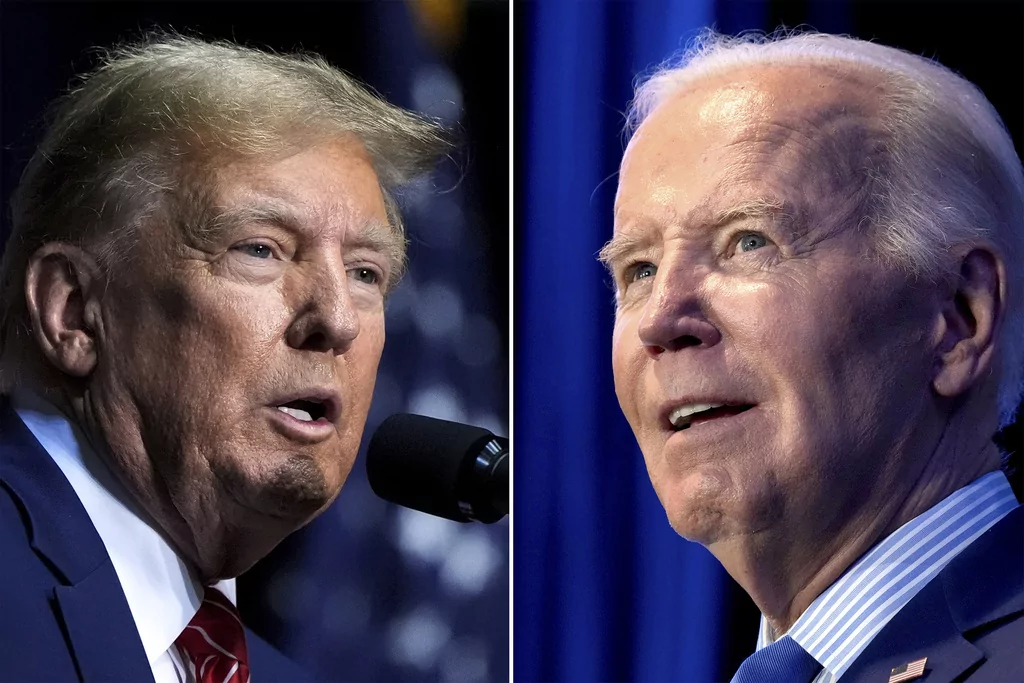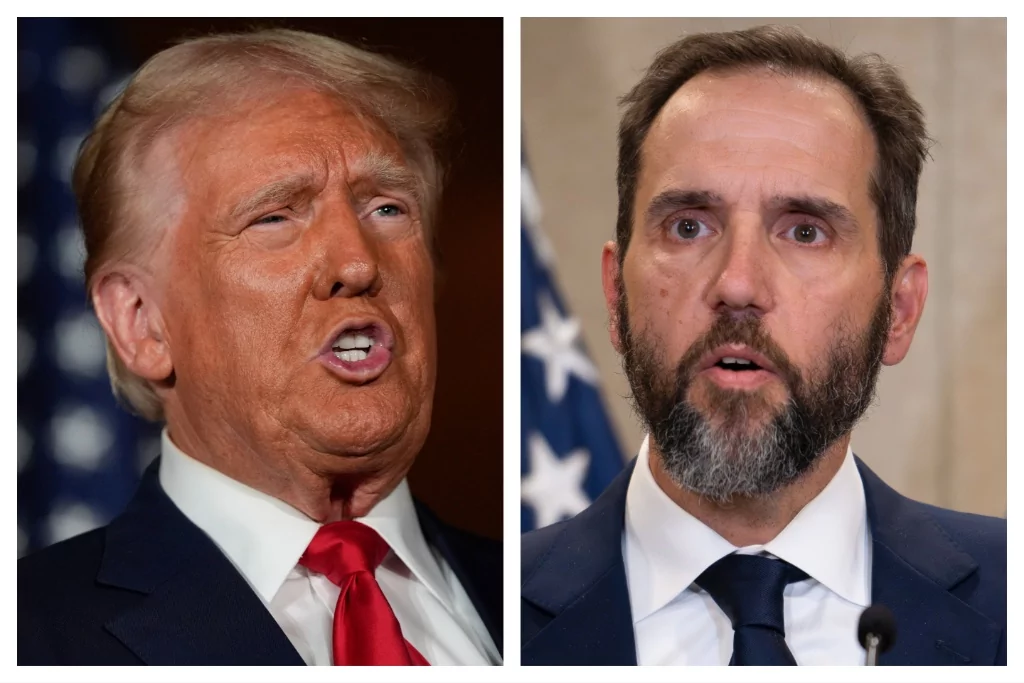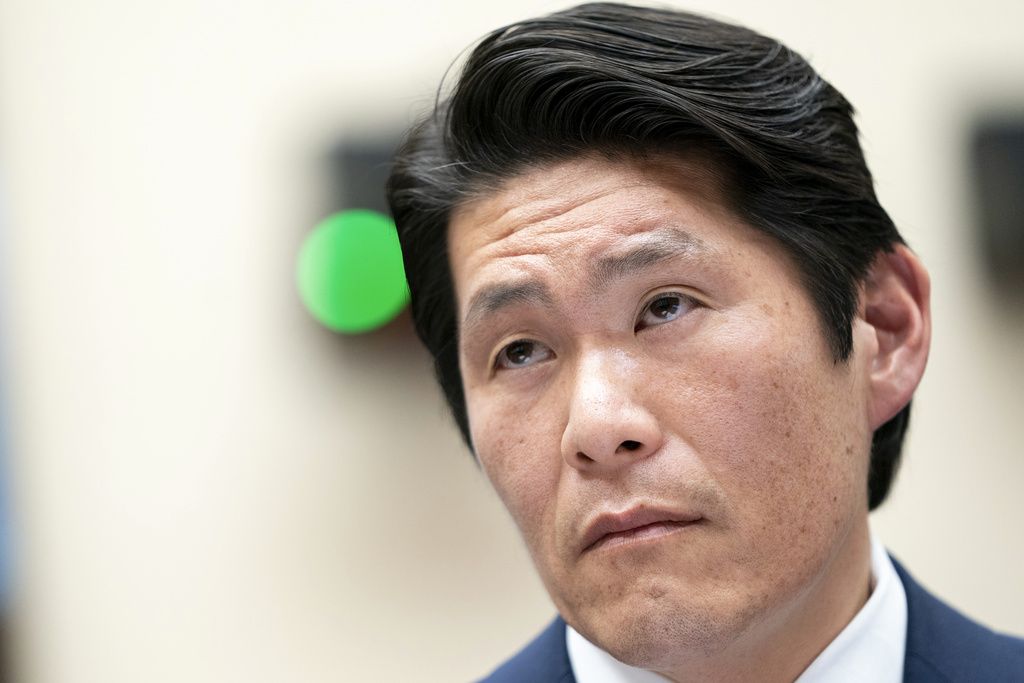
Whoever wins the presidential race on Nov. 5 will have 76 days to complete a complicated and massive effort to take over the federal government from outgoing President Joe Biden. That process has already begun for Donald Trump and Kamala Harris. While most of the attention will fall on what the president-elect is doing, some scrutiny may fall on Biden’s transition out of office, including on how his team handles classified documents. In this series, the Washington Examiner will look at the challenges ahead for all three leaders’ transitions. Part 3 will look at how Trump and Biden’s classified documents scandals have sown discord over the traditional transition process.
President Joe Biden‘s handling of classified documents during his transition out of office could draw scrutiny, given the Justice Department’s pursuit of his predecessor over documents taken during the last outgoing transition and his own history of mishandling classified material.
Although Biden earlier this year announced the formation of the Presidential Records Transition Task Force to address what his administration described as a long-standing problem of mishandling classified documents during transitions, the effort has been scantly discussed since its formation.
Heritage Foundation’s Oversight Project Director Mike Howell told the Washington Examiner more may need to be done in order to ensure Biden’s own outgoing transition and return of classified information is conducted properly.
Republicans in Congress “should at least raise the issue to the National Archives and Records Administration, call the archivist to testify, is what I would do,” Howell said.

Rep. James Comer (R-KY), chairman of the House Oversight Committee, said Biden’s handling of sensitive material as he leaves the White House should be carefully watched.
“President Biden willfully retained classified documents from his time as vice president and as a senator and jeopardized our national security as a result,” Comer told the Washington Examiner. “As President Biden prepares to leave office, Americans must have confidence that he will not willfully retain classified documents again. We fully expect those responsible for handling presidential records to closely monitor the presidential transition and ensure President Biden follows the law.”
Experts aren’t sure how Biden’s task force will play its role
As Trump and Biden’s high-profile scandals involving classified documents unfolded over the past two years, concerns about the overall system for handling classified materials grew, prompting Biden to create the task force to ensure an orderly and proper transition.
Biden “is taking action to help strengthen future transitions to better prevent classified documents from being accidentally packed up and removed from the government, like we have seen with officials from every administration for decades,” White House counsel Ian Sams said in February.
Trump faced criminal charges after an aggressive effort by the National Archives to retrieve classified material he took when he left the Oval Office in January 2021 led to a criminal investigation and, eventually, an FBI raid on his Mar-a-Lago home.
Weeks later, news broke that Biden had alerted the National Archives to classified documents his lawyers had discovered in his former Washington, D.C., office, leading to a DOJ investigation that uncovered Biden’s repeated instances of mishandling classified material from his time as vice president.
In both cases, Biden and Trump had emerged from outgoing presidential transitions with sensitive material still in their possession.
The Washington Examiner contacted the Biden White House regarding its plans for the task force created to address such problems but did not receive a response.
But several experts the Washington Examiner spoke to said they had either not heard about Biden’s announcement of the effort in February or were unsure about the significance of the role it will play as Biden departs the Oval Office.
The task force is being led by Katy Kale, deputy administrator of the General Services Administration, the same agency Trump is refusing to cooperate with in his transition. Kale was an assistant for management and administration during the Obama administration, and the panel on the task force is composed of representatives from the current White House, GSA, NARA, the National Security Council and the Office of the Director of National Intelligence.
After a presidency, the responsibility for the custody, control, preservation, and access to presidential records shifts to the Archivist. In order to streamline the transfer of records and materials to the incoming administration, NARA’s system provides “end-to-end lifecycle coverage for electronic records,” and federal agencies were required to place all permanent records into an electronic format by the end of June this year, according to a Congressional Research Service report from July 30.
Howell emphasized that it would be “smart” for the House Oversight Committee, led by Comer, to put the Archivist on notice that they should expect to testify over the management of Biden’s exit.
Trump’s GSA transition delay
Trump’s campaign has chosen not to sign documents that would allow it to begin coordinating with the General Services Administration on a transition effort. Refusing to do so provides the campaign the flexibility to avoid disclosing private donors and abiding by a $5,000 donation limit.
However, it could also slow down the massive hand-off of government secrets between the outgoing Biden administration and incoming Trump administration if Trump wins in November, said Irina Tsukerman, a national security analyst and lawyer, although it will not entirely prevent Trump from receiving the classified information he’ll need.
“In the event Trump wins the elections, the failure to abide by the procedure could complicate and delay receiving classified and national security information from the Biden team,” Tsukerman said.
Tsukerman noted the result of the Trump campaign’s decision could amount to a temporary self-inflicted wound on the Trump campaign, only because it would shut down access to classified and national security briefings ahead of Trump’s potential inauguration, but that the impact would not be substantial in the long term.
“Most likely in the event the [Trump] team wants to gain access to those documents and information, they will not be strictly speaking prevented from doing so by failing to follow a deadline, unless the Biden team decides, out of spite, to follow the protocol very strictly,” Tsukerman said.
Bradley Moss, a national security attorney who has been critical of Trump’s post-presidency storage of documents at Mar-a-Lago, said Trump’s lack of coordination with GSA is unsurprising given his distrust of Biden’s administration while maintaining that Trump should work with the agency.
Trump “has never respected the customs or procedures of the national security apparatus, as evidenced by his complete disregard for those very customs while president, and there is no reason to believe he will do so given the classified documents prosecution and the Supreme Court ruling on immunity,” Moss said.
Biden took heat for his handling of documents while Trump faces charges
Trump was indicted in the summer of 2023 over the alleged mishandling of classified documents that were discovered at his Mar-a-Lago residence after he left the White House. Special counsel Jack Smith, appointed by Attorney General Merrick Garland, accused Trump of willfully retaining classified materials, including some involving national security, and obstructing efforts by the FBI to retrieve the documents.

The investigation revealed that Trump had been asked repeatedly to return the materials, ad that he allegedly directed his staff to conceal them from federal agents. This led to charges under the Espionage Act and obstruction of justice charges, but the case was dismissed after a federal judge ruled Smith was improperly appointed by Garland. The fate of whether the case continues or gets dismissed under the next president greatly depends on who wins.
In contrast, Biden faced notably less scrutiny when classified documents tied to his time as vice president were found in several private locations, including his private office at the Penn Biden Center and his Wilmington, Delaware, home. Nevertheless, the discovery of these documents prompted Garland to appoint special counsel Robert Hur to investigate the matter.

While Hur’s subsequent investigation uncovered that Biden had improperly stored classified materials, it did not lead to charges, with Hur citing the president’s “severely limited” memory and concerns about whether a jury might think he “made an innocent mistake.” Hur also said Biden and his team had cooperated fully with investigators from the start, voluntarily returning the documents without resistance or attempts to hide them.
But the differing legal outcomes between Trump and Biden have led to accusations of a double standard in the enforcement of laws governing classified materials. Trump and his allies have argued that the former president is being unfairly targeted and that Biden received leniency.
CLICK HERE TO READ MORE FROM THE WASHINGTON EXAMINER
In light of the prosecution over Trump’s handling of classified documents, the former executive director of the Trump-Pence presidential transition team Ken Nahigian told the Washington Examiner that Trump has every right to exclude the federal government at this juncture of his campaign.
“A transition is not the campaign and it is not the Administration. When it has completed its function it is dissolved. I’m sure the ‘way we’ve always done it’ crowd will be upset, but President Trump has every right not to accept government support,” Nahigian said.






